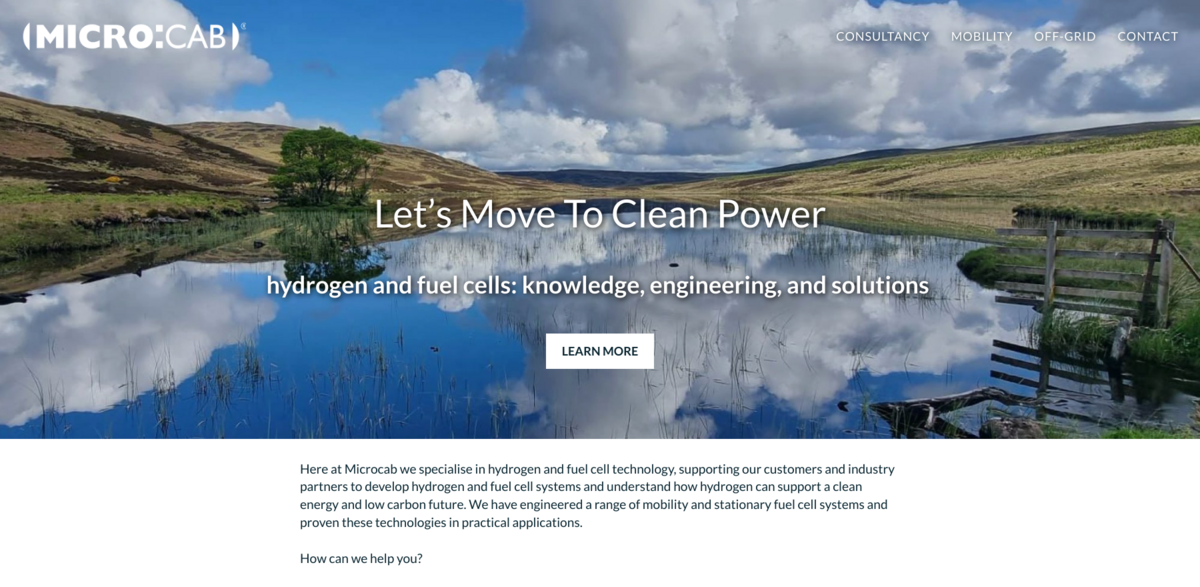What Microcab’s Project is All About
Let’s move to clean power. Microcab specialises in hydrogen and fuel cell technology, working closely with customers and industry partners to develop hydrogen and fuel cell systems. The goal? To understand how hydrogen can support a clean energy and low carbon future. They’ve engineered a range of mobility and stationary fuel cell systems and proven these technologies in real-world applications. It’s not just theory — it’s practical, it’s happening.
The Main Benefit of Microcab’s Work
Why does this matter? Well, here are some key points that highlight the impact:
- Hydrogen is the most abundant element in the universe — that’s a huge resource.
- Microcab’s technology supports a clean energy future by reducing reliance on fossil fuels.
- Fuel cell systems designed by Microcab have been tested and proven in practical settings.
- The company’s focus on sustainability addresses critical environmental issues like air and water quality, soil erosion, and climate warming.
- Microcab is a UK SME based in Coventry, pioneering lean weight fuel cell vehicles — lightweight and efficient.
Understanding Microcab’s Mission
Microcab is founded on principles that support the sustainability agenda. Everyone knows the big challenge: the deterioration of ecosystems worldwide. Air and water quality are declining, soil is eroding, species are disappearing, and climate warming is accelerating. Plus, natural resources are being overused. Microcab’s mission is to tackle these issues head-on by promoting hydrogen technology as a clean alternative that can help restore balance to these critical systems.
Hydrogen: The Fuel of the Future
Hydrogen itself is fascinating. It’s everywhere — the most abundant element in the universe — but it’s usually bonded with other elements like oxygen in water (H2O) or carbon in methane (CH4). Industries already use hydrogen extensively, but mostly it comes from natural gas, a fossil fuel. Extracting hydrogen from methane releases carbon dioxide, which adds to global emissions. On the other hand, splitting hydrogen from water releases only oxygen, but it requires electrical energy. So, the challenge is to find clean ways to produce hydrogen that don’t harm the planet.
Microcab’s Collaborations and Support Network
Microcab doesn’t work alone. The company has a strong network of clients, partners, and funders who share the vision of a hydrogen-powered future. These collaborations help push the technology forward, fund research, and bring innovations to market. Together, they’re building a community focused on clean energy solutions that can make a real difference.
Project Impact on Sustainable Development Goals (SDGs)
- SDG 7: Affordable and Clean Energy — promoting hydrogen as a clean fuel source.
- SDG 9: Industry, Innovation, and Infrastructure — pioneering new fuel cell technologies.
- SDG 11: Sustainable Cities and Communities — developing clean mobility solutions.
- SDG 13: Climate Action — reducing carbon emissions through alternative energy.
- SDG 15: Life on Land — addressing ecosystem deterioration by supporting sustainable practices.
Why Microcab’s Work Matters Today
In a world facing urgent environmental challenges, Microcab’s focus on hydrogen and fuel cell technology offers a promising path forward. By engineering practical solutions and collaborating widely, they’re helping to shift the energy landscape toward something cleaner and more sustainable. It’s about more than just technology — it’s about protecting the planet and ensuring a better future for all.


















